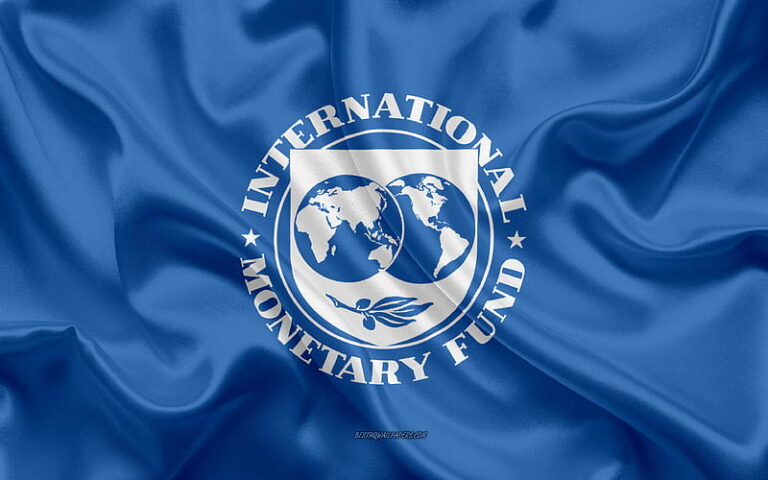Senior officials from the African Development Bank Group (www.AfDB.org) detailed the positive impacts of Bank-supported projects affecting virtually all facets of life across the continent during 2023—a year hailed as one of the most successful in its history.
Bank Vice President Marie-Laure Akin-Olugbade said: “2023 was an exceptional year for the African Development Bank, $10.1 billion in approvals, a 30% increase on 2022—this is the second highest level approvals in the history of the Bank.”
Akin-Olugbade, Vice-President for the Regional Development, Integration and Business Delivery Complex at Africa’s premier development finance institution, was participating in a high-level panel discussion on Thursday, following the publication of the latest edition of the Bank’s Annual Development Effectiveness Review (ADER).
The review—unveiled at the Bank’s Annual Meetings currently taking place in the Kenyan capital, Nairobi—serves as a critical benchmark to assess Bank Group’s progress in advancing Africa’s development priorities.
This 2023 edition highlighted the Bank’s efforts to assist African countries confront global economic headwinds which have hit the continent in recent years.
The ADER 2024 report, titled ‘Investing in Africa’s resilience and inclusive growth,’ concludes that Africa has shown remarkable resilience, steadily charting a course back to economic growth. Despite the challenging operating environment that contributed to implementation delays, the Bank’s project portfolio regained its growth momentum, reaching a value of nearly $60 billion.
Armand Nzeyimana, Director of the Bank’s Development Impact and Results Department stressed how the Bank had created new tools and instruments to measure the impact of its development projects and programmes. He said they could now be followed online, and the results monitored. The Bank now boasts a new state of the art mapping system to track such projects.
“We are interested in tangible outcomes, such as kilometers of roads built, jobs created – the true measure of success for the Bank is the benefits provided to communities and people across the continent,” he said.
In a wide-ranging discussion, several panel speakers emphasized the direct impacts the Bank’s support had had in the past year in its High 5 strategic priority areas which are essential for creating Africa’s economic transformation. These are: Light Up and Power Africa, Feed Africa, Industrialize Africa, Integrate Africa, and Improve the Quality of Life for the People of Africa.
The Vice President for Finance and Chief Financial Officer of the Bank Hassatou Diop N’Sele told the gathering that she was delighted to report that the Bank was now on very solid ground and pointed to the Triple AAA rating it received from rating agencies and thanked the Bank’s Boards of Directors and Governors for their approval of a $117 billion general callable capital increase.
“The African Development Bank is a very strong bank, we have a very strong profile, and this was confirmed by credit rating agencies,” she said. But she added work still needed to be done for the Bank to be able to raise even more capital on markets.
Solomon Quaynor, Vice-President for Private Sector, Infrastructure&Industrialization, added that the Bank had enhanced its reputation as the “solutions’ Bank” and continued to focus on infrastructure projects which could change how business was conducted across the continent.
He pointed out that the Bank was focusing on “green minerals” and said that the Bank was prioritizing projects which would ensure that those minerals were never exported simply as raw materials but as part of the Bank-supported wider industrialization process.
“That is the anchor of this project, we are going to build agricultural zones, industrial parks. The core competency of infrastructure development is to combine it with the promotion of economic growth,” he said.
Senior Vice President Swazi Tshabalala, Vice President for President for Power, Energy, Climate and Green Growth Kevin Kariuki and Vice President for Agriculture, Human and Social Development Beth Dunford, shared their complexes’ results during the programme’s panel session.
Click here (https://apo-opa.co/3wRw176) for the full report.
Click here for photos and replay (https://apo-opa.co/4aRlCWC) of the session.
Distributed by APO Group on behalf of African Development Bank Group (AfDB).
Contact:
Jonathan Clayton
Communication and External Relations
email: media@afdb.org
About the African Development Bank Group :
The African Development Bank Group is Africa’s premier development finance institution. It comprises three distinct entities: the African Development Bank (AfDB), the African Development Fund (ADF) and the Nigeria Trust Fund (NTF). On the ground in 41 African countries with an external office in Japan, the Bank contributes to the economic development and the social progress of its 54 regional member states. For more information: www.AfDB.org



